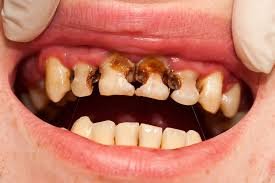News
IGP directs police to wear protective gear with armoured escorts in Bawku

The Ghana Police Service has expressed concern that its personnel and their families have become targets of attacks in Bawku and its surrounding areas in the Upper East region.
As a result, the Inspector General of Police (IGP) Christian Tetteh Yohuno has banned the movement of police officers and their families to Bawku and its environs.
The IGP further instructed officers already deployed in the region to wear protective gear and ensure they are escorted by armoured vehicles for their safety.
This measure is aimed at addressing the increasing threats faced by law enforcement in the area after two uninformed police officers travelling on a motorbike were killed at Binduri.
The killing occurred shortly after the IGP visited Bawku and called for calm over reports that some police officers had killed a youth leader in the area.
JoyNews’ journalist Maxwell Agbagba commented on the new safety measures, stating, “The police are urged to wear appropriate Personal Protective Equipment (PPE) and ensure they are escorted by armoured vehicles. The directive stresses the need for swift compliance and should be treated as urgent. Failure to adhere to this could be dangerous, so all officers should take note and comply.”
Meanwhile, a press conference that was scheduled for today, Tuesday, at 9 a.m. to discuss the situation in Bawku was unexpectedly canceled just before it was to begin.
Source:myjoyonline.com
News
Tooth decay cases rises in Tema

Dr Kakra Bonsu Appiah, Head of the Dental and Oral Surgery Department at the Tema General Hospital, says tooth decay has become the most common dental problem affecting residents of Tema.
Dr Appiah mentioned that there have been more patients reporting with cavities, toothaches, and other complications linked to poor oral hygiene.
He told the Ghana News Agency (GNA) in an interview that tooth decay was caused by the breakdown of the tooth’s structure due to acids produced by bacteria in the mouth, which thrive on sugary foods and poor brushing habits, making good oral hygiene practices essential in preventing the disease.
“The most common cause of dental caries is poor oral hygiene. When you look at how dental caries form, you will understand that poor oral hygiene is the leading cause of dental caries; it is about leaving food debris around the teeth,” he stated.
Dr Appiah explained that many of the cases presented at the hospital could have been avoided through regular brushing, proper diet, and timely dental check-ups, emphasising that maintaining oral health was not just about having clean teeth but also plays a critical role in overall well-being.
He advised residents to brush their teeth at least twice a day with fluoride toothpaste, floss regularly to remove food particles between teeth, and reduce the intake of sugary snacks and drinks, as well as visit the dentist twice a year.
The dentist also expressed concern that people only visited the hospital when the pain became unbearable, urging Ghanaians to visit the dentist regularly to prevent emergencies.
Dr Appiah further appealed to parents to educate children on good oral hygiene practices from an early age and reduce their intake of sugary foods. —GNA
News
Tramadol abuse among youth reaches alarming height …FDA, Nat’l Security urged to act

A Reverend Father and Clinical Psychologist at the Eastern Regional Hospital, Dr Isaac Acheampong Sarfo, has warned that the youth, representing Ghana future workforce, could be crippled if nothing is done about the growing abuse of Tramadol.
He said the abuse of the drug has assumed levels that requires an urgent need for collective action to curb it, cautioning that if it was left unchecked, it could cripple the country’s future workforce and derail national development.
What is more worrying now, he stated, was the fact that the drug Tramadol, originally prescribed as a painkiller, is being processed into cakes, drinks, and toffees, making it more accessible and discreet to consume.
In an interview with The Spectator, Rev. Dr Sarfo explained that the drug’s addictive potential was high, whether prescribed or not, because it caused the release of dopamine, a chemical linked to pleasure and calmness.
“It seems as though we’re asleep while the future of our nation is quietly being destroyed. If we don’t act now, these young people will be unable to shoulder future responsibilities, and the entire nation will suffer,” he lamented.
Tramadol has become a drug of choice for a section of the youth for its euphoric and mood-enhancing effects due to its interaction with opioid receptors in the brain.
He explained that over time, users build a tolerance and required higher doses, risking overdose and dependence, alerting that continuous use could overwhelm the nervous system, leading to life-threatening conditions.
Common signs among abusers includes mood swings, emotional instability, hallucinations, depression, and withdrawal from family and social circles.
Abusers also engaged in risky behaviours and suffer from cognitive issues like poor concentration, confusion, and slower reaction times.
“Tramadol abuse can also impact the development of adolescent brains, especially in areas tied to judgment, impulse control, and decision-making. It consequences include academic failure, poor memory, and social maladjustment,” he stated.
Dr Sarfo, who is also the Director of Counselling at the Koforidua Technical University, warned that the healthcare system could become overwhelmed, with rising cases of addiction and mental health challenges.
To tackle this crisis, Dr Sarfo called for a multi-sectoral approach and urged the government, particularly the Food and Drugs Authority (FDA) and National Security to intensify efforts to stem the import and distribution of the drug as well as sales points.
He also appealed to religious leaders to speak out against drug abuse with compassion, and for parents to be more attentive and involved in their children’s lives.
Furthermore, Dr Sarfo called for the establishment of active youth centres that can provide guidance and resources to tackle some of these societal problems.
He advised the youth to engage in important things that could guarantee them a brighter future and disengage from Tramadol abuse which offered no benefit but only led to misery and loss of purpose.
He urged those already affected to seek counselling and rehabilitation, urging all stakeholders work together to save the nation’s future.
By Ama Tekyiwaa
Ampadu Agyeman, Koforidua












